John Ruskin - Lectures on Art, Delivered Before the University of Oxford in Hilary Term, 1870
Здесь есть возможность читать онлайн «John Ruskin - Lectures on Art, Delivered Before the University of Oxford in Hilary Term, 1870» — ознакомительный отрывок электронной книги совершенно бесплатно, а после прочтения отрывка купить полную версию. В некоторых случаях можно слушать аудио, скачать через торрент в формате fb2 и присутствует краткое содержание. Жанр: foreign_antique, foreign_home, literature_19, visual_arts, на английском языке. Описание произведения, (предисловие) а так же отзывы посетителей доступны на портале библиотеки ЛибКат.
- Название:Lectures on Art, Delivered Before the University of Oxford in Hilary Term, 1870
- Автор:
- Жанр:
- Год:неизвестен
- ISBN:нет данных
- Рейтинг книги:4 / 5. Голосов: 1
-
Избранное:Добавить в избранное
- Отзывы:
-
Ваша оценка:
- 80
- 1
- 2
- 3
- 4
- 5
Lectures on Art, Delivered Before the University of Oxford in Hilary Term, 1870: краткое содержание, описание и аннотация
Предлагаем к чтению аннотацию, описание, краткое содержание или предисловие (зависит от того, что написал сам автор книги «Lectures on Art, Delivered Before the University of Oxford in Hilary Term, 1870»). Если вы не нашли необходимую информацию о книге — напишите в комментариях, мы постараемся отыскать её.
Lectures on Art, Delivered Before the University of Oxford in Hilary Term, 1870 — читать онлайн ознакомительный отрывок
Ниже представлен текст книги, разбитый по страницам. Система сохранения места последней прочитанной страницы, позволяет с удобством читать онлайн бесплатно книгу «Lectures on Art, Delivered Before the University of Oxford in Hilary Term, 1870», без необходимости каждый раз заново искать на чём Вы остановились. Поставьте закладку, и сможете в любой момент перейти на страницу, на которой закончили чтение.
Интервал:
Закладка:
32. The great arts—forming thus one perfect scheme of human skill, of which it is not right to call one division more honourable, though it may be more subtle, than another—have had, and can have, but three principal directions of purpose:—first, that of enforcing the religion of men; secondly, that of perfecting their ethical state; thirdly, that of doing them material service.
33. I do not doubt but that you are surprised at my saying the arts can in their second function only be directed to the perfecting of ethical state, it being our usual impression that they are often destructive of morality. But it is impossible to direct fine art to an immoral end, except by giving it characters unconnected with its fineness, or by addressing it to persons who cannot perceive it to be fine. Whosoever recognises it is exalted by it. On the other hand, it has been commonly thought that art was a most fitting means for the enforcement of religious doctrines and emotions; whereas there is, as I must presently try to show you, room for grave doubt whether it has not in this function hitherto done evil rather than good.
34. In this and the two next following lectures, I shall endeavour therefore to show you the grave relations of human art, in these three functions, to human life. I can do this but roughly, as you may well suppose—since each of these subjects would require for its right treatment years instead of hours. Only, remember, I have already given years, not a few, to each of them; and what I try to tell you now will be only so much as is absolutely necessary to set our work on a clear foundation. You may not, at present, see the necessity for any foundation, and may think that I ought to put pencil and paper in your hands at once. On that point I must simply answer, "Trust me a little while," asking you however also to remember, that—irrespectively of any consideration of last or first—my true function here is not that of your master in painting, or sculpture, or pottery; but to show you what it is that makes any of these arts fine , or the contrary of fine : essentially good , or essentially base . You need not fear my not being practical enough for you; all the industry you choose to give me, I will take; but far the better part of what you may gain by such industry would be lost, if I did not first lead you to see what every form of art-industry intends, and why some of it is justly called right, and some wrong.
35. It would be well if you were to look over, with respect to this matter, the end of the second, and what interests you of the third, book of Plato's Republic; noting therein these two principal things, of which I have to speak in this and my next lecture: first, the power which Plato so frankly, and quite justly, attributes to art, of falsifying our conceptions of Deity: which power he by fatal error partly implies may be used wisely for good, and that the feigning is only wrong when it is of evil, "ἐάν τις μὴ καλῶς ψεύδηται;" and you may trace through all that follows the beginning of the change of Greek ideal art into a beautiful expediency, instead of what it was in the days of Pindar, the statement of what "could not be otherwise than so." But, in the second place, you will find in those books of the Polity, stated with far greater accuracy of expression than our English language admits, the essential relations of art to morality; the sum of these being given in one lovely sentence, which, considering that we have to-day grace done us by fair companionship, 3 3 There were, in fact, a great many more girls than University men at the lectures.
you will pardon me for translating. " Must it be then only with our poets that we insist they shall either create for us the image of a noble morality, or among us create none? or shall we not also keep guard over all other workers for the people, and forbid them to make what is ill-customed, and unrestrained, and ungentle, and without order or shape, either in likeness of living things, or in buildings, or in any other thing whatsoever that is made for the people? and shall we not rather seek for workers who can track the inner nature of all that may be sweetly schemed; so that the young men, as living in a wholesome place, may be profited by everything that, in work fairly wrought, may touch them through hearing or sight—as if it were a breeze bringing health to them from places strong for life? "
36. And now—but one word, before we enter on our task, as to the way you must understand what I may endeavour to tell you.
Let me beg you—now and always—not to think that I mean more than I say. In all probability, I mean just what I say, and only that. At all events I do fully mean that ; and if there is anything reserved in my mind, it will be probably different from what you would guess. You are perfectly welcome to know all that I think, as soon as I have put before you all my grounds for thinking it; but by the time I have done so, you will be able to form an opinion of your own; and mine will then be of no consequence to you.
37. I use then to-day, as I shall in future use, the word "Religion" as signifying the feelings of love, reverence, or dread with which the human mind is affected by its conceptions of spiritual being; and you know well how necessary it is, both to the rightness of our own life, and to the understanding the lives of others, that we should always keep clearly distinguished our ideas of Religion, as thus defined, and of Morality, as the law of rightness in human conduct. For there are many religions, but there is only one morality. There are moral and immoral religions, which differ as much in precept as in emotion; but there is only one morality, which has been, is, and must be for ever, an instinct in the hearts of all civilised men, as certain and unalterable as their outward bodily form, and which receives from religion neither law, nor place; but only hope, and felicity.
38. The pure forms or states of religion hitherto known, are those in which a healthy humanity, finding in itself many foibles and sins, has imagined, or been made conscious of, the existence of higher spiritual personality, liable to no such fault or stain; and has been assisted in effort, and consoled in pain, by reference to the will or sympathy of such purer spirits, whether imagined or real. I am compelled to use these painful latitudes of expression, because no analysis has hitherto sufficed to distinguish accurately, in historical narrative, the difference between impressions resulting from the imagination of the worshipper, and those made, if any, by the actually local and temporary presence of another spirit. For instance, take the vision, which of all others has been since made most frequently the subject of physical representation—the appearance to Ezekiel and St. John of the four living creatures, which throughout Christendom have been used to symbolise the Evangelists. 4 4 Only the Gospels, "IV Evangelia," according to St. Jerome.
Supposing such interpretation just, one of those figures was either the mere symbol to St. John of himself, or it was the power which inspired him, manifesting itself in an independent form. Which of these it was, or whether neither of these, but a vision of other powers, or a dream, of which neither the prophet himself knew, nor can any other person yet know, the interpretation,—I suppose no modestly-minded and accurate thinker would now take upon himself to decide. Nor is it therefore anywise necessary for you to decide on that, or any other such question; but it is necessary that you should be bold enough to look every opposing question steadily in its face; and modest enough, having done so, to know when it is too hard for you. But above all things, see that you be modest in your thoughts, for of this one thing we may be absolutely sure, that all our thoughts are but degrees of darkness. And in these days you have to guard against the fatallest darkness of the two opposite Prides;—the Pride of Faith, which imagines that the nature of the Deity can be defined by its convictions; and the Pride of Science, which imagines that the energy of Deity can be explained by its analysis.
Интервал:
Закладка:
Похожие книги на «Lectures on Art, Delivered Before the University of Oxford in Hilary Term, 1870»
Представляем Вашему вниманию похожие книги на «Lectures on Art, Delivered Before the University of Oxford in Hilary Term, 1870» списком для выбора. Мы отобрали схожую по названию и смыслу литературу в надежде предоставить читателям больше вариантов отыскать новые, интересные, ещё непрочитанные произведения.
Обсуждение, отзывы о книге «Lectures on Art, Delivered Before the University of Oxford in Hilary Term, 1870» и просто собственные мнения читателей. Оставьте ваши комментарии, напишите, что Вы думаете о произведении, его смысле или главных героях. Укажите что конкретно понравилось, а что нет, и почему Вы так считаете.
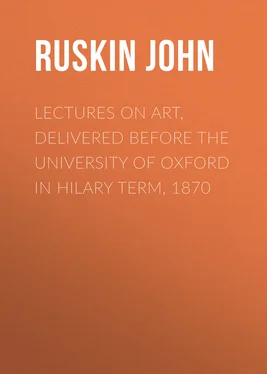



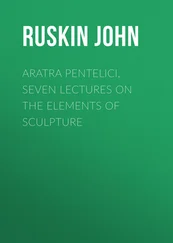
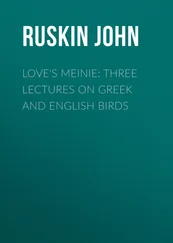

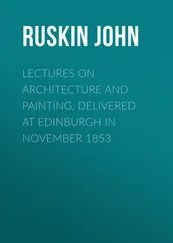

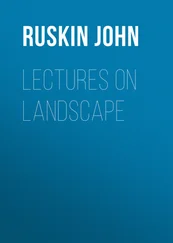


![John Bruce - The Lettsomian Lectures on Diseases and Disorders of the Heart and Arteries in Middle and Advanced Life [1900-1901]](/books/749387/john-bruce-the-lettsomian-lectures-on-diseases-and-disorders-of-the-heart-and-arteries-in-middle-and-advanced-life-1900-1901-thumb.webp)